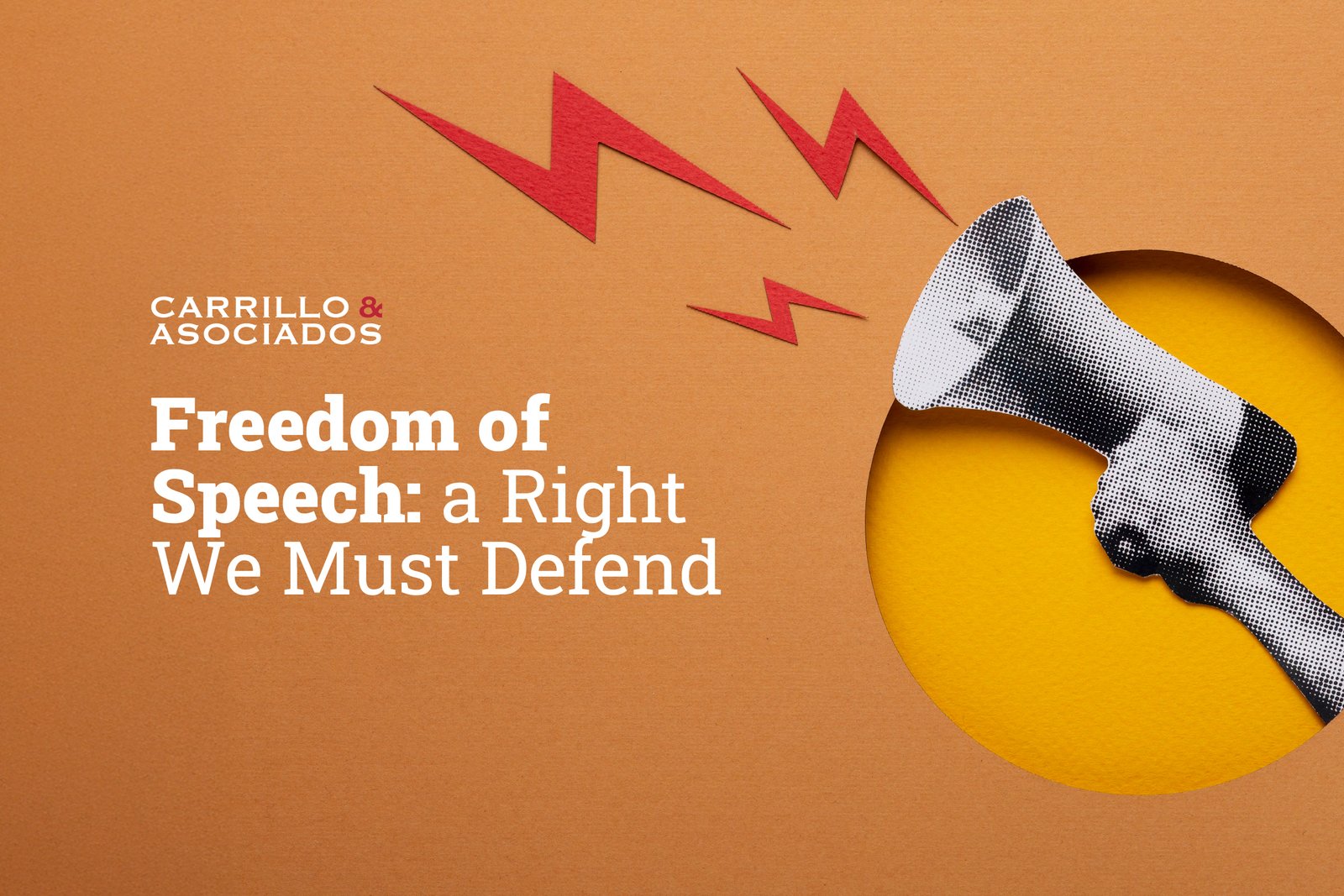
What would you think if every time a union leader who spoke out against a policy ended up in court? Or if a businessman who complained about the state of the roads ended up in front of a judge? Or if a company's social media accounts were censored for expressing an opinion contrary to the status quo?
These are situations that should not occur in a democratic country that respects freedom of speech. But sadly, they are still common in countries with authoritarian overtones or where justice is used to silence critical voices
Moreover, this shows that the right to freedom of expression is not just for journalists and the media. It is something that protects anyone so that they can freely express opinions without this being a reason for censorship or persecution.
In the case of Guatemala, the protection of this right was included in the 1985 Constitution, which is still in force, precisely because of a long period of de facto regimes characterized by political repression and systematic violations of human rights and civil liberties.
Thus, Article 35 of the Constitution guaranteed the free expression of thought "by any means of dissemination, without censorship or prior license". This right extended the provisions of the Expression of Thought Act, also of constitutional rank and in force since 1965.
Although both laws focus much of their content on journalists and the media, both the resolutions of the Inter-American Court of Human Rights (IACHR) and the Constitutional Court (CC) have made it clear that this right applies to everyone, and not only to a specific profession or group of people.
The fact that we all have the freedom to express our opinions does not mean that there are no limits or that we can say anything without consequences. It will not be acceptable to hide behind this right to defame, disseminate hate speech or threaten others, because these are crimes defined in the Guatemalan penal code.
Freedom of Expression and Journalism
On May 2, 2025, Reporters Without Borders published the World Press Freedom Index 2025. Although Guatemala improved four places from the previous year, it currently ranks 134th out of 180 countries. In 2024, the country was described as hostile territory for journalists, and the new report highlights that smear campaigns, police harassment, and physical and verbal attacks are the main types of abuses against journalists. This has led many into exile.
According to numbers provided by Red Rompe el Miedo, in the last four years, 70 journalists have been persecuted and criminalized in Guatemala, and at least 20 have gone into exile in countries such as the United States, Mexico, France and Spain.
There are cases, such as that of the founder of elPeriódico, José Rubén Zamora, who has been in preventive detention for more than 1,000 days while facing several legal proceedings. Or the lawsuit that a former official initiated against the directors of the newspaper La Hora, Óscar Clemente Marroquín and Pedro Pablo Marroquín, for publications made in their paper.
This occurred even though the Expression of Thought Act makes it clear that, if a journalist or media outlet publishes something in which it mentions an individual or public official and they disagree, the cases must be elucidated through the procedures outlined in that law, not through civil or criminal proceedings
In addition, Article 35 of the Constitution specifies that "publications containing claims, criticisms or accusations against public officials or civil servants for acts carried out in the exercise of their duties do not constitute a crime or misdemeanor".
Within the process against the directors of La Hora, the reasoned vote issued by the magistrate of the Constitutional Court (CC) Rony López in March 2025 was important, because it set a precedent in favor of freedom of expression.
According to López, journalism is not a crime and what happened in this case was "a proper function of journalists who have revealed information about a public official, in the exercise of the free expression of thought enshrined in Article 35 of our Constitution".
In this context, it becomes essential to remember Evelyn Hall's famous phrase: "I don't agree with what you say, but I will defend with my life your right to say it". And whether we agree or disagree with any opinion or position, we must all defend freedom of expression, as it is a fundamental pillar for a democracy to function.

